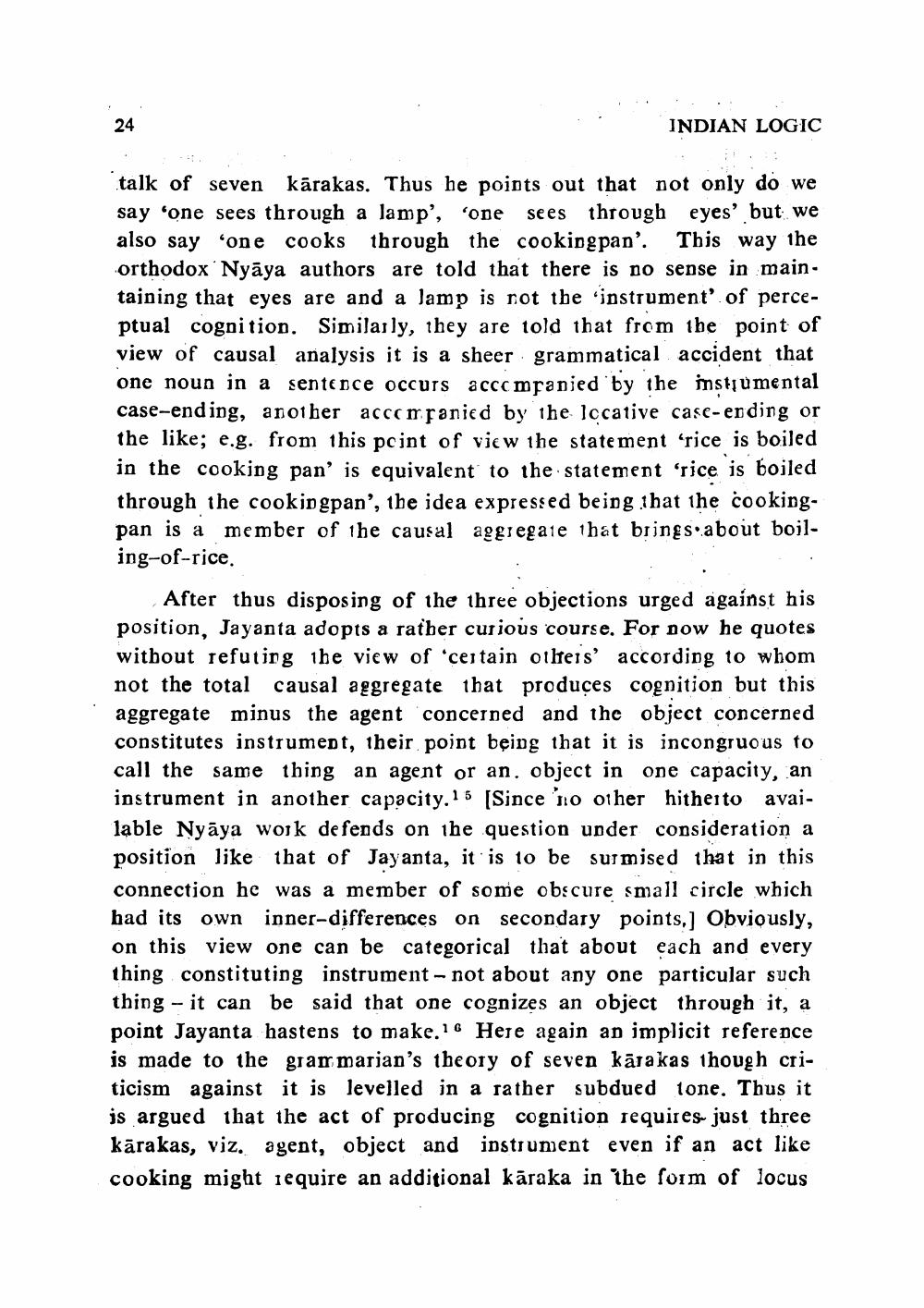________________
24
INDIAN LOGIC
talk of seven karakas. Thus he points out that not only do we say 'one sees through a lamp', 'one sees through eyes' but we also say 'one cooks through the cookingpan'. This way the orthodox Nyāya authors are told that there is no sense in maintajping that eyes are and a lamp is not the instrument' of perceptual cognition. Similarly, they are told that from the point of view of causal analysis it is a sheer grammatical accident that one noun in a sentence occurs accompanied by the instsumental case-ending, another accompanied by the locative case-ending or the like; e.g. from this point of view the statement 'rice is boiled in the cooking pan' is equivalent to the statement 'rice is boiled through the cookingpan', the idea expressed being that the cooking. pan is a member of the causal aggregate that brings about boiling-of-rice.
After thus disposing of the three objections urged against his position, Jayanta adopts a rather curious course. For now he quotes without refuting the view of certain otheis' according to w not the total causal aggregate that produces cognition but this aggregate minus the agent concerned and the object concerned constitutes instrument, their point being that it is incongruous to call the same thing an agent or an. object in one capacity, an instrument in another capacity. 15 (Since no other hitherto available Nyāya work defends on the question under consideration a position like that of Jayanta, it is to be surmised that in this connection he was a member of some obscure small circle which had its own inner-differences on secondary points,] Obviously, on this view one can be categorical that about each and every thing constituting instrument - not about any one particular such thing - it can be said that one cognizes an object through it, a point Jayanta hastens to make. 16 Here again an implicit reference is made to the grammarian's theory of seven kārakas though criticism against it is levelled in a rather subdued tone. Thus it is argued that the act of producing cognition requires just thr kārakas, viz. agent, object and instrument even if an act like cooking might iequire an additional kāraka in the form of locus




